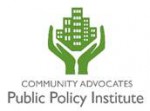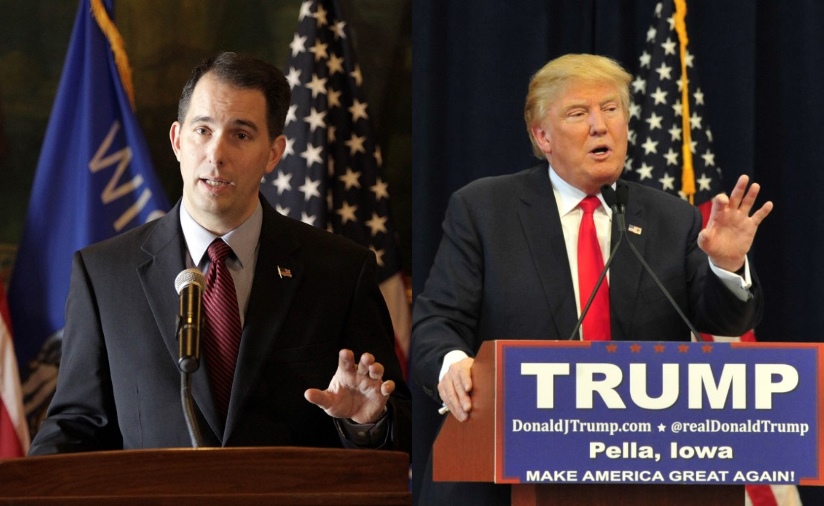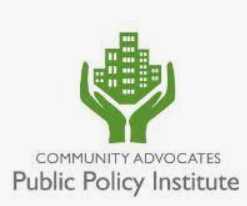Potential Medicaid Changes
“A Threat Level that Low-Income Wisconsinites Have Never Seen”
Milwaukee—If President Trump, Republican leaders in Congress, and the Walker Administration can implement their proposed changes to the Medicaid program, the longstanding health care program will be utterly transformed, posing tough questions for state policy makers.
That’s according to four health care experts who spoke with reporters last week about the turning point Medicaid faces. The House of Representatives passed the American Health Care Act (AHCA) to repeal the Affordable Care Act (ACA) in May, which if implemented would cap the Medicaid program and threaten the health care of almost 1.2 million Wisconsinites who are low-income, frail, or live with a disability. The president’s proposed budget includes the AHCA’s broad changes and makes further funding cuts to the program far into the future. Lastly, the Walker Administration is seeking a waiver from the federal government to impose new requirements on BadgerCare enrollees, including drug testing.
The combination of the funding cuts and program reforms would change Medicaid as we know it.
“Any one of these policies—the pieces of the AHCA, President Trump’s budget, or the waiver—would be a major threat to health coverage for this population,” Mike Bare, Research and Program Coordinator for the Community Advocates Public Policy Institute, told reporters. “Their sum is a threat level that low-income Wisconsinites have never seen.”
Additional quotes from the call:
Barbara Beckert, Milwaukee Office Director, Disability Rights Wisconsin
- “Cuts to Medicaid of this magnitude will have a devastating impact on our most vulnerable community members. The health, independence, and lives of children and adults with disabilities, and frail elders, are on the line.”
- “We urge that Medicaid be pulled out of the AHCA, and ask policy makers to focus on the real cost drivers for health care: physician, facility and drug costs which are the highest in the world, high administrative expenses, uncoordinated care, and a failure to address the social determinants of health, including preventive health.”
- “The disability community is eager to work with policy makers to develop a plan for sustaining Medicaid and share our commonsense, cost-saving, and sustainability solutions to ensure the future of Medicaid. One immediate change is to make community services a mandatory Medicaid service, and remove the incentive for more costly institutional care.”
Mary Neubauer, Co-Chair, Milwaukee Mental Health Task Force; Member, Milwaukee County Mental Health Board; Certified Peer Specialist; Medicaid Enrollee
- “I’m not asking for a handout or for pity. I’m merely asking to be able to go to the doctor when I’m sick, to take medication so that I can work and volunteer, and to be heard by the policy makers who are making decisions that have an enormous impact on the health and wellbeing of so many Americans.”
- “I can only wonder how long I could remain employed and be active as a volunteer in the community if I couldn’t fill my prescriptions, see my psychiatrist, therapists, or receive supportive home services to help me live independently. My life would be taken away from me.”
Jon Peacock, Research Director, Wisconsin Council on Children and Families
- “Unfortunately, the traumatic changes to Medicaid proposed by the House of Representatives and the president have largely been overshadowed by other aspects of the American Health Care Act. As a result many people are unaware that both President Trump’s budget and the House bill would change the fundamental nature of the Medicaid program in order to pay for huge tax cuts for corporations and wealthy Americans.”
- “The new funding system would allow some growth in spending, but it would gradually fall further and further short of what is needed to serve the vulnerable people that rely on Medicaid.”
- “You can’t make cuts of even 10%, much less 45%, to Medicaid without forcing states to sharply reduce either eligibility or services for many of the people that rely on Medicaid.”
- “There are currently almost 1.2 million Wisconsinites who participate in Medicaid-funded programs and whose health care will be at risk if the president’s proposals are approved. That includes roughly 500,000 Wisconsin children, 167,000 people with disabilities, 65,000 seniors in nursing homes.”
To learn more about the potential changes to Medicaid, check out these resources:
Community Advocates Public Policy Institute, Comments on BadgerCare Waiver Application, May 2017
Disability Rights Wisconsin Fact Sheet, “Medicaid Funding in Schools: Threat to Children with Disabilities”
Kaiser Family Foundation Report on Medicaid in Wisconsin, January 2017
Milwaukee Mental Health Task Force Fact Sheet, “Medicaid’s Role in Mental Health and Addiction Services,” May 2017
Wisconsin Council on Children and Families, “Changes to the Affordable Care Act: What’s at Risk in Wisconsin,” May 2017
Wisconsin Council on Children and Families, “Trump Budget Demonstrates the Perils of Changing Medicaid,” May 2017
NOTE: This press release was submitted to Urban Milwaukee and was not written by an Urban Milwaukee writer. While it is believed to be reliable, Urban Milwaukee does not guarantee its accuracy or completeness.
Mentioned in This Press Release
Recent Press Releases by Community Advocates Public Policy Institute
Community Advocates Will Continue to Provide Energy Assistance Despite Federal Layoffs at the Low-Income Home Energy Assistance Program
Apr 4th, 2025 by Community Advocates Public Policy Institute2024-2025 Energy Assistance Benefit Season Ends May 15
Join the Discover Wellness Walk on May 18
May 13th, 2024 by Community Advocates Public Policy InstituteThis family-friendly community event supports mental wellness. Cathedral Square Park | May 18 | 10 a.m. to 12 noon
Join Us during Light & Unite RED Week 2024
Mar 13th, 2024 by Community Advocates Public Policy InstituteMilwaukee County shows its support for substance-free living March 18 through March 24






















